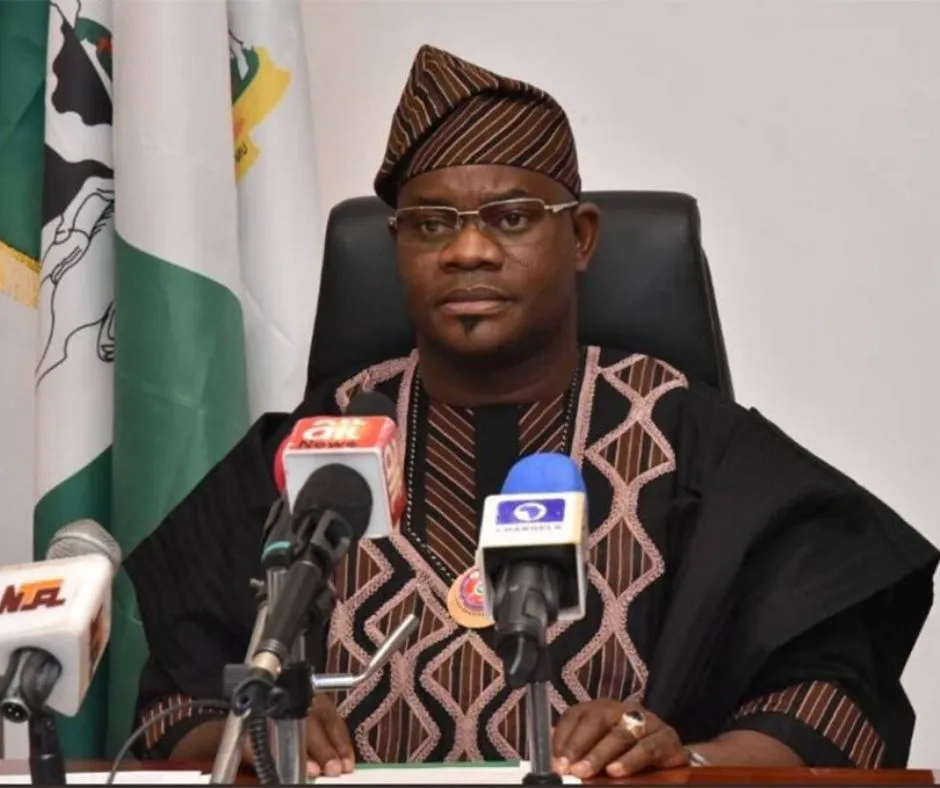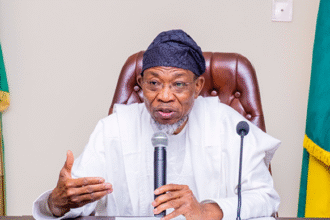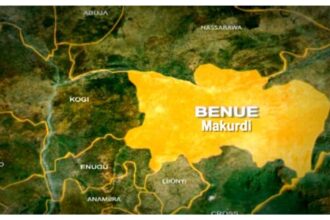...To get all news updates, Join our WhatsApp Group (Click Here)
Also Join our WhatsApp Channel (Click Here)
By Sabiu Gaya
On Tuesday, April 23, 2024, Mr. Ola Olukoyede, Chairman, Economic and Financial Crimes Commission (EFCC) in the full glare of the media and diverse global audiences passed a verdict of ‘guilty’ on Yahaya Bello, former governor of Kogi State.
It was a crude enactment of the Latin phrase, ‘Nemo judex in causa sua’ which roughly translates as: No man can judge his own cause; or be a judge in his own cause. At a media briefing in which senior editors were present, Olukoyede waxed emotional as he convicted Bello before the media and before the world. In his now trending video, the EFCC Chair did not allege that Bello embezzled funds from Kogi treasury, he said pointedly that the former governor stole from a state as poor as Kogi.
With a microphone and right before the media, Olukoyede gave a vivid account of how the former governor allegedly withdrew money from the state coffers to pay for his children’s school fees upfront. This is something an EFCC witness should be telling the court, not EFCC Chairman telling the media. He even threatened to resign if Bello was not prosecuted to the end.
He was emotional as he was recklessly showy in his theatrics to tar Bello, still a suspect until pronounced guilty by a court of law, in the darkest colour of ignominy.
There is a huge difference between law and emotions. Cases are determined on documentary evidence, not on the whims of emotions.
Debating the details of a Charge Sheet in the media by the prosecutor is not only sub-judice but also an affront on the defendant’s constitutional right to fair hearing. Why is EFCC engaging in needless drama if it has established a prima facie case against Bello? And why should the Chairman of the commission be the person huffing and puffing with a microphone before the media in a matter that is already active in court?
What the EFCC chair did was both morally and legally wrong. For a case that is already active in court, you don’t go with full throttle in the public space to be adjudicating on the matter and passing off statements that tendentiously suggest that Bello was already guilty before ever enjoying as much as a whiff of fair hearing in the court of law. Olukoyede as EFCC chairman has a dog in this fight with the Kogi ex-governor. He is the investigator and prosecutor, not the judge. EFCC is not the court either. But from what any discerning mind could glean off from the EFCC Chairman’s show on Tuesday, he has become the judge in his own cause, an abuse of a long-established legal dictum.
The EFCC is not a trial institution. The issue of guilty or not guilty is for the court to determine. Bello has approached the court to enforce his fundamental human rights, an inalienable right he is constitutionally entitled to. He got a restraining order barring the EFCC from arresting, harassing and prosecuting him. The EFCC appealed the order but lacked the discipline to wait for the court to vacate the order. Rather, the EFCC stormed Bello’s residence without a warrant of arrest but with full media coverage.
What manner of anti-graft agency is that? Jettisoning procedural route and embracing brigandage as the EFCC has done in the Bello case as in other notable cases makes people infer that no suspect will get fair hearing with the EFCC.
As it now stands, Bello is not assured of fair hearing if the EFCC Chairman could all but pronounce him guilty at a media briefing. This is not a prosecutorial procedure. It is persecution, crass and crude.
In a matter of this nature, once the case is before the court, the EFCC has no business with investigation. In a season when President Bola Tinubu and many senior lawyers are advocating for justice reforms, the EFCC is slipping deeper and deeper into the abyss of impunity and utter disregard for the rule of law. This is unacceptable as it is condemnable. Olukoyede’s actions these past weeks amount to subtle intimidation of the judges ahead of the real legal fireworks. That is not fair hearing. Justice is only said to have been done when there is fair hearing. It is actions of persons like Olukoyede and institutions like the EFCC that has made Nigerians to lose confidence in the judiciary.
An institution of justice, especially an investigating and prosecutorial institution like the EFCC ought to be diligent in its investigation, hence it is termed “discreet investigation.” If the EFCC has done its job of investigation very well and it has as much as established a prima facie case against Bello or any other person, it should head to court and save the nation the resources, time and drama of effecting arrest and taking the defendant into custody.
Ab initio, the EFCC has not been fair to Bello. The revelation by the EFCC Chair that he put a call across to Bello further begs the issue. Why call him or even accord him special privileges? In the eyes of the law, Bello is just another Nigerian citizen shorn of immunity, though a former governor. But even as a suspect, he is entitled to his fundamental human rights.
One of such rights is that he is presumed innocent until proven guilty by a court of competent jurisdiction. But EFCC is abridging such right. Its Chairman is now the one pronouncing Bello guilty via the media. It is an insult on the legal profession, lawyers and the court system. It is actions like this that have made Bello’s legal team to wonder if their client will ever get fair hearing and justice when the legal maelstrom begins.
Bello’s legal team has stated that the former governor is not running away from the court of law. They insist Bello believes in the judiciary, hence he approached the Kogi High Court to enforce his fundamental human rights. But they fear that with the body language of Olukoyede and his pronouncements lately, their client will be subjected to the most inhuman treatment not inside the court room but in the custody of an already biased EFCC. Olukoyede should tread lightly for the sake of the image of the commission.
· Gaya, lecturer and public policy analyst, writes from Kano.
You can get every of our news as soon as they drop on WhatsApp ...To get all news updates, Join our WhatsApp Group (Click Here)
Also Join our WhatsApp Channel (Click Here)












